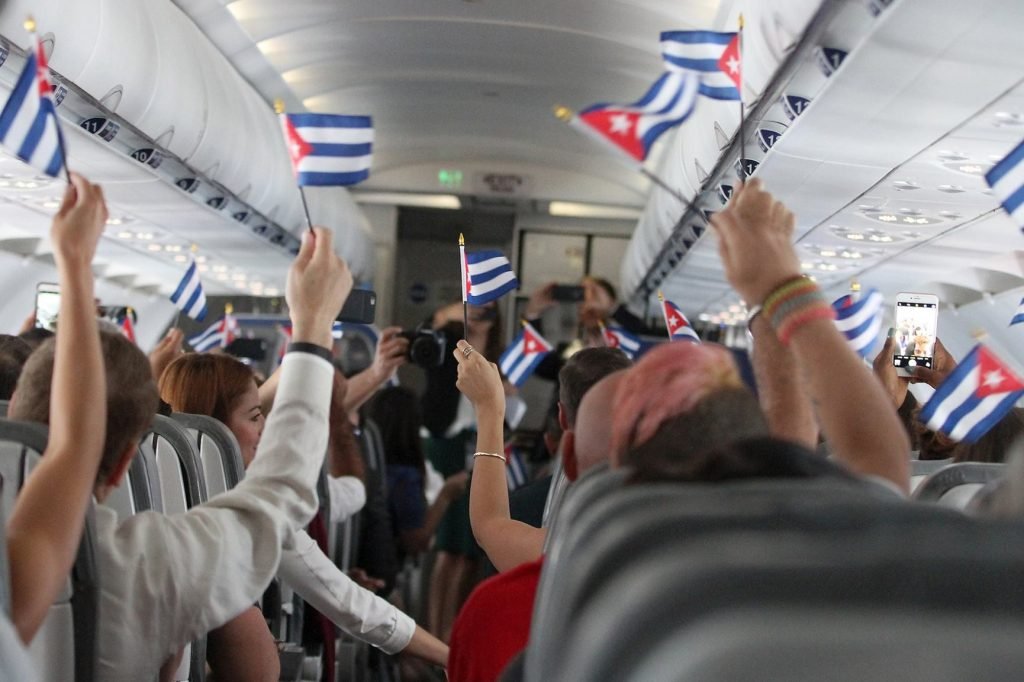When will Cuba re-open?
In mid-March of 2020, I planned to join 42 of my grad school classmates on a week-long trip to Havana. This wasn't going to be your typical spring break trip; if we even made it to the beach, we were only there to do trash clean-up (the U.S. Treasury effectively has a ban on sunbathing).
Our schedule instead centered around hearing from Cuban citizens in the arts, agriculture, hospitality and more. We looked forward to long conversations on Cuban history and the U.S.-Cuba relationship.
The whole group was booked on JetBlue 867, a direct flight from BOS to HAV. But at the last minute, the trip was canceled. COVID-19 had, as they say, entered the chat. The pandemic would not only alter our travel plans, but go on to change the world as we knew it.
A year and a half later, Cuba is re-opening its borders to international visitors. November 15th is the date. Getting tourists back to the island, however, may prove difficult.
Cuba is just coming off a peak of Coronavirus cases, so the government and citizens are cautious about an influx of visitors. Due to early, restrictive measures, COVID-19 exhibited very little spread on the island during the first 12 months of lockdowns. But as other countries obtained access to vaccines, Cuba did not, and the situation took a nosedive. Cases and deaths rose throughout the summer. But thanks to an aggressive vaccination campaign, Cuba is getting back on its feet. Although the Cuban vaccine is still unrecognized by the World Health Organization, it seems to be working. Cases are down and the vaccination rate is higher than in the U.S., according to Our World in Data.
Still, caution abounds, among both locals and foreigners. Visitors may feel pressure to stay away from the island out of fear increasing Coronavirus transmission and potentially overwhelming an already challenged healthcare system.
The economic climate will also delay a full comeback. Cuba is in the middle of its worse economic crisis since the 1990s, which is when the Soviet Union collapsed and could no longer provide support. Today’s downturn was triggered by the pandemic, which killed tourism and access to foreign capital. As a result, Cubans have struggled to gain access to the most basic necessities, notably food and fuel.
Some Twitter and Reddit users have expressed that it may be immoral for tourists to enjoy food and drink aplenty while everyday Cubans scrape by. Given the fact that tourism is Cuba's largest economic sector, however, I would think liberal spending by foreign visitors would do the country more good than harm.
Politics are also at play. The ongoing tension between the US and Cuba creates an environment of uncertainty for visitors. The Trump White House rolled back many of Obama's Cuba policies, thereby tightening access to the island, and the current administration has shown no indication that it will nurture the relationship back to health.
Travel to Cuba was legal before the pandemic, and it will be legal after November 15. U.S. citizens cannot visit as tourists, but they can visit under a "support for the Cuban people" travel license. Providing support to the Cuban people can be as simple as staying in an Airbnb (instead of a government-owned hotel) and engaging with locals in various non-touristic ways.
Jet Blue's inaugural flight to Cuba in 2016. Associated Press Images for JetBlue
Despite the legality of travel, the political environment is confusing, and discourages Americans from visiting. Citizens from other countries not bound by these same restrictions may feel the confusion, too.
Tourism is the lifeblood of the Cuban economy, so re-opening to international visitors is a much-needed measure. But it will take quite a bit of time to return to pre-pandemic tourism volume.
However long it takes, it appears the travel industry is poised for a return to normal. Airbnb listings in Cuba are still widely available. JetBlue and Southwest are still running flights from Miami to Havana six days a week. We may be back in Cuba sooner than we think.

